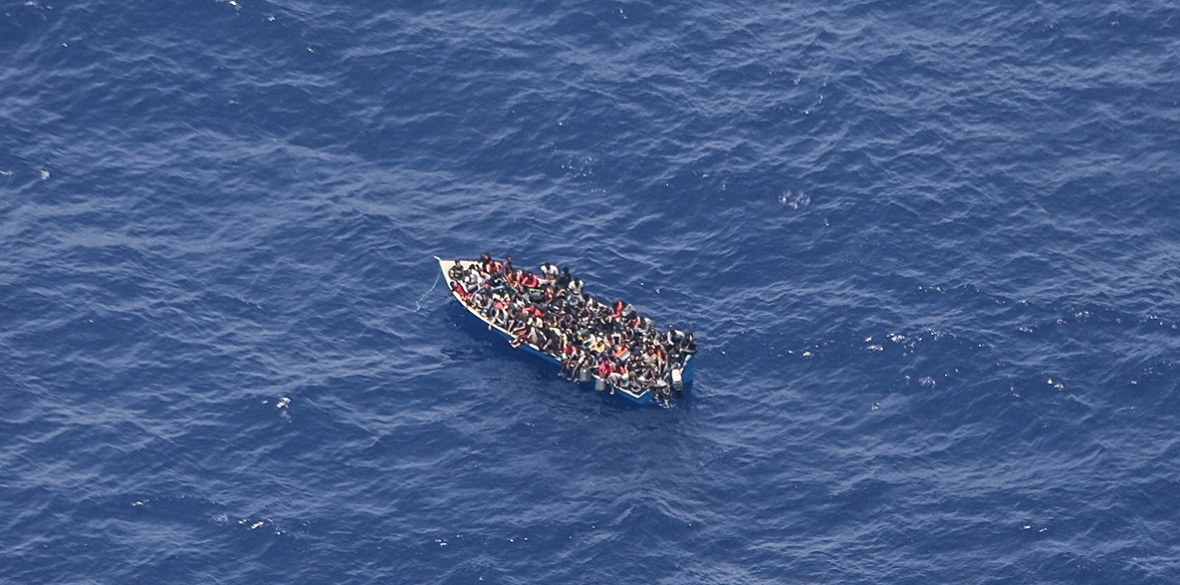This is the last article you can read this month
You can read more article this month
You can read more articles this month
Sorry your limit is up for this month
Reset on:
Please help support the Morning Star by subscribing here
MORE people have died on maritime migration routes into Europe in the first six months of this year than in the same period of 2020, according to research by the International Organisation for Migration (IOM).
At least 1,146 people have drowned so far this year, which represents “a substantial increase compared with the fatalities recorded in the same period in 2020 (513) and 2019 (674),” says the IOM report published on Tuesday.
The vast majority of the deaths (896) occurred in the Mediterranean Sea, while at least 250 people died in the Atlantic Ocean while trying to reach Spain’s Canary Islands and six others during attempts to cross the Aegean Sea from Turkey to Greece.
Many more deaths are likely to have gone unrecorded, the report says, adding that “every one of these people has left behind a family who may never know what has happened to their lost loved ones.”
The IOM also found that over 15,300 people were pushed back to war-torn Libya between January to June, a figure almost three times the total for the same period of last year (5,476).
“This is particularly worrying, given that migrants who are intercepted at sea and returned to Libya are subjected to arbitrary detention, extortion, disappearance and torture,” the report says.
A small number of NGOs and activist groups have been the only actors supporting refugees and carrying out search-and-rescue (SAR) operations in the central Mediterranean since the European Union withdrew its ships from the area in 2019.
But, the report warns, these civilian rescuers have “continued to face significant obstacles to their operations, with the majority of their boats blocked at European ports due to administrative seizures and ongoing criminal and administrative proceedings against crew members.”
“This led to limited deployment — if any at all — of civilian SAR ships during the first half of 2021. Most of the time, only one boat was present at sea, while nine were blocked in ports pending legal proceedings (as of June 2021).”
IOM director general Antonio Vitorino reiterated the organisation’s call for European states to uphold their obligation under international law to save lives at sea.
“Increasing SAR efforts, establishing predictable disembarkation mechanisms and ensuring access to safe and legal migration pathways are key steps towards achieving this goal,” Mr Vitorino said.
Another example of a European state failing, as the United Nations Convention on the Law of the Sea puts it, “to proceed with all possible speed to the rescue of persons in distress” occurred in Malta’s SAR zone on Tuesday, leading to three people dying.
This morning about 4.30am local time, an Armed Forces of Malta (AFM) patrol boat brought a wooden boat to shore carrying 81 people, three of them dead.
Although, about 24 hours earlier, activist network Alarm Phone had alerted the Maltese authorities to the boat in distress.
Later on Tuesday morning, the Moonbird, a reconnaissance plane operated by German NGO Sea-Watch, found the boat and monitored the situation from the skies.
“The merchant vessel Chembulk Barcelona is on the way to the case,” Sea-Watch posted on social media this morning.
“It is their duty to render immediate assistance, not to just stand by. Malta must ensure a swift rescue.”
The Moonbird crew later spotted two other ships — one of them a Turkish warship — in the refugees’ vicinity, but, Sea-Watch said, Malta had ordered them to stand by.
The Turkish ship, Sea-Watch said, “only sent its helicopter to monitor the scene. Such a frigate is perfectly equipped for rescue operations. There is no excuse not to rescue and to bring the people to a place of safety.”
The exact circumstances of the three deaths are not yet known, but Sea-Watch spokesman Ruben Neugebauer told the Star today that the Maltese Rescue Co-ordination Centre (RCC) was likely to have been responsible.
“Three people have died, probably because Malta delayed its rescue efforts. Malta likely hoped the so-called Libyan Coastguard would pull them back.
“This criminal behaviour of the Maltese RCC has to have consequences. However, it most likely won’t, as these three people have the wrong skin colour and Europe is keeping silent.
“Everyone knows that Malta is the ugly bouncer for [its] own deadly policies. These people did not die by accident. They died because of institutional racism.”

 Ben Cowles
Ben Cowles










